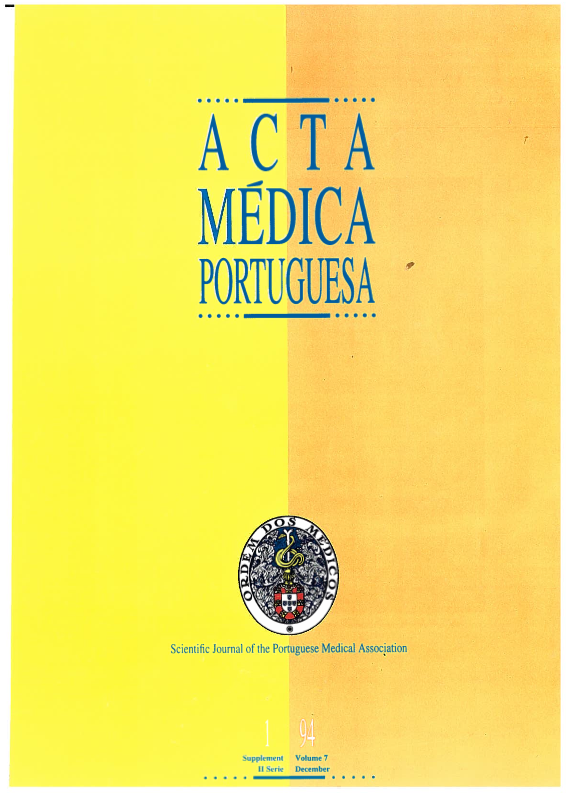Obstructive sleep apnea. Clinical and laboratory studies.
DOI:
https://doi.org/10.20344/amp.3029Abstract
Our study included 42 patients with obstructive sleep apnea (OSAS) confirmed by polysomnography. In these patients we investigated the clinical manifestations, the results of the laboratory examinations, including polysomnography, ORL observations and tests of pulmonary function, as well as the therapeutic results. Our patients presented a serious set of symptoms which included excessive daytime sleepiness, snoring, obesity, craniofacial abnormalities, systemic hypertension, cardiac arrhythmias, incapacity to work with precocious retirement, marital conflicts and high incidence of accidents, namely traffic accidents. An adequate treatment, mostly with nasal CPAP (continuous positive airway pressure), induced marked relief of the symptoms; some patients had an advantage in surgical treatment and weight reduction. OSAS is a frequent entity, affecting mostly male adults after the 5th decade. The lack of knowledge about this entity and the common social acceptance of some of its cardinal symptoms induces considerable delays in its diagnosis. The severity of the symptoms, the personal and social risks of excessive daytime sleepiness, the cardiocirculatory effects and the risk of sudden death during sleep justify an early diagnosis in order to prevent the severe evolution of the disease. Its complex physiopathology and multiple etiological factors justify a multidisciplinary approach.Downloads
Downloads
How to Cite
Issue
Section
License
All the articles published in the AMP are open access and comply with the requirements of funding agencies or academic institutions. The AMP is governed by the terms of the Creative Commons ‘Attribution – Non-Commercial Use - (CC-BY-NC)’ license, regarding the use by third parties.
It is the author’s responsibility to obtain approval for the reproduction of figures, tables, etc. from other publications.
Upon acceptance of an article for publication, the authors will be asked to complete the ICMJE “Copyright Liability and Copyright Sharing Statement “(http://www.actamedicaportuguesa.com/info/AMP-NormasPublicacao.pdf) and the “Declaration of Potential Conflicts of Interest” (http:// www.icmje.org/conflicts-of-interest). An e-mail will be sent to the corresponding author to acknowledge receipt of the manuscript.
After publication, the authors are authorised to make their articles available in repositories of their institutions of origin, as long as they always mention where they were published and according to the Creative Commons license.









